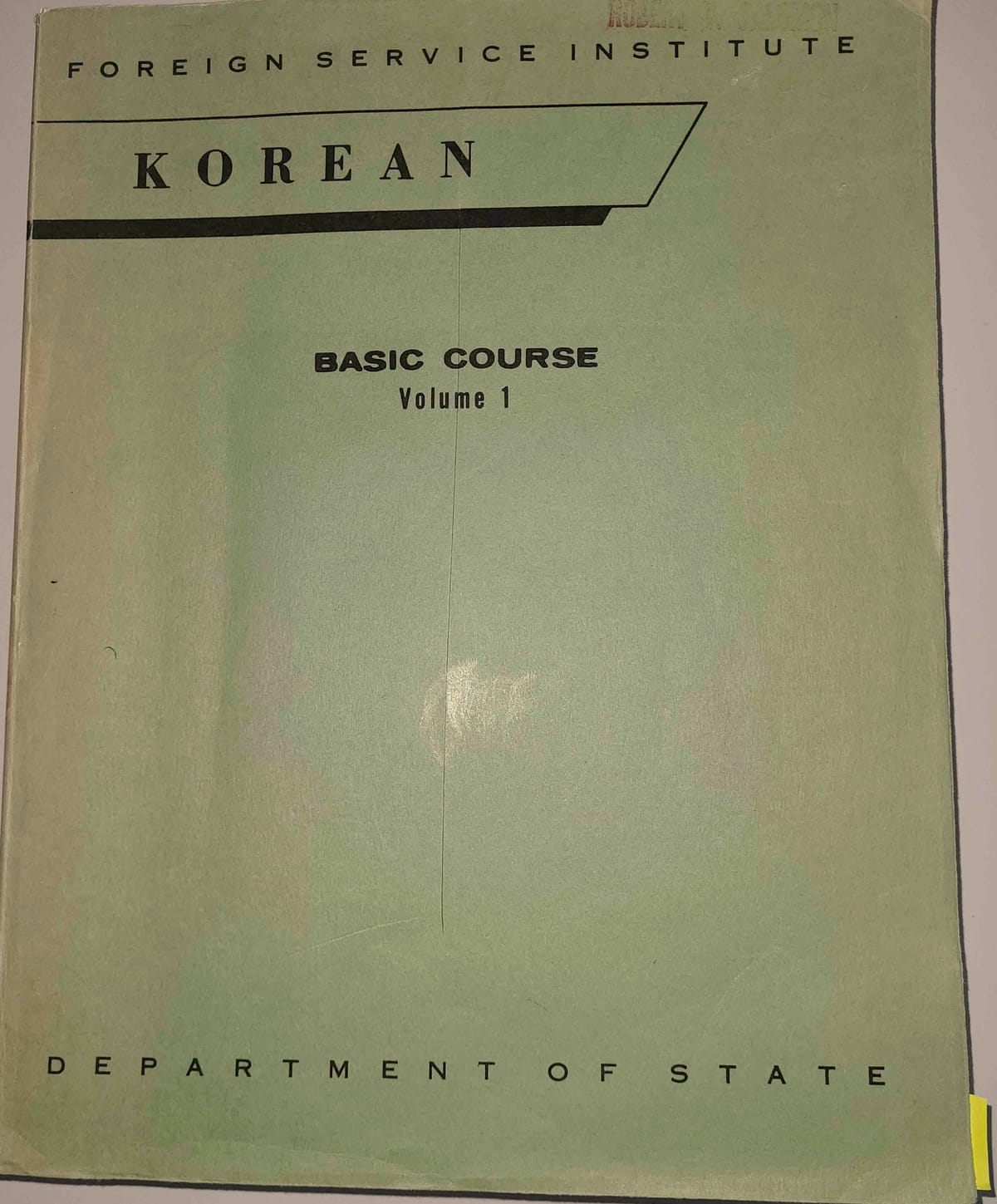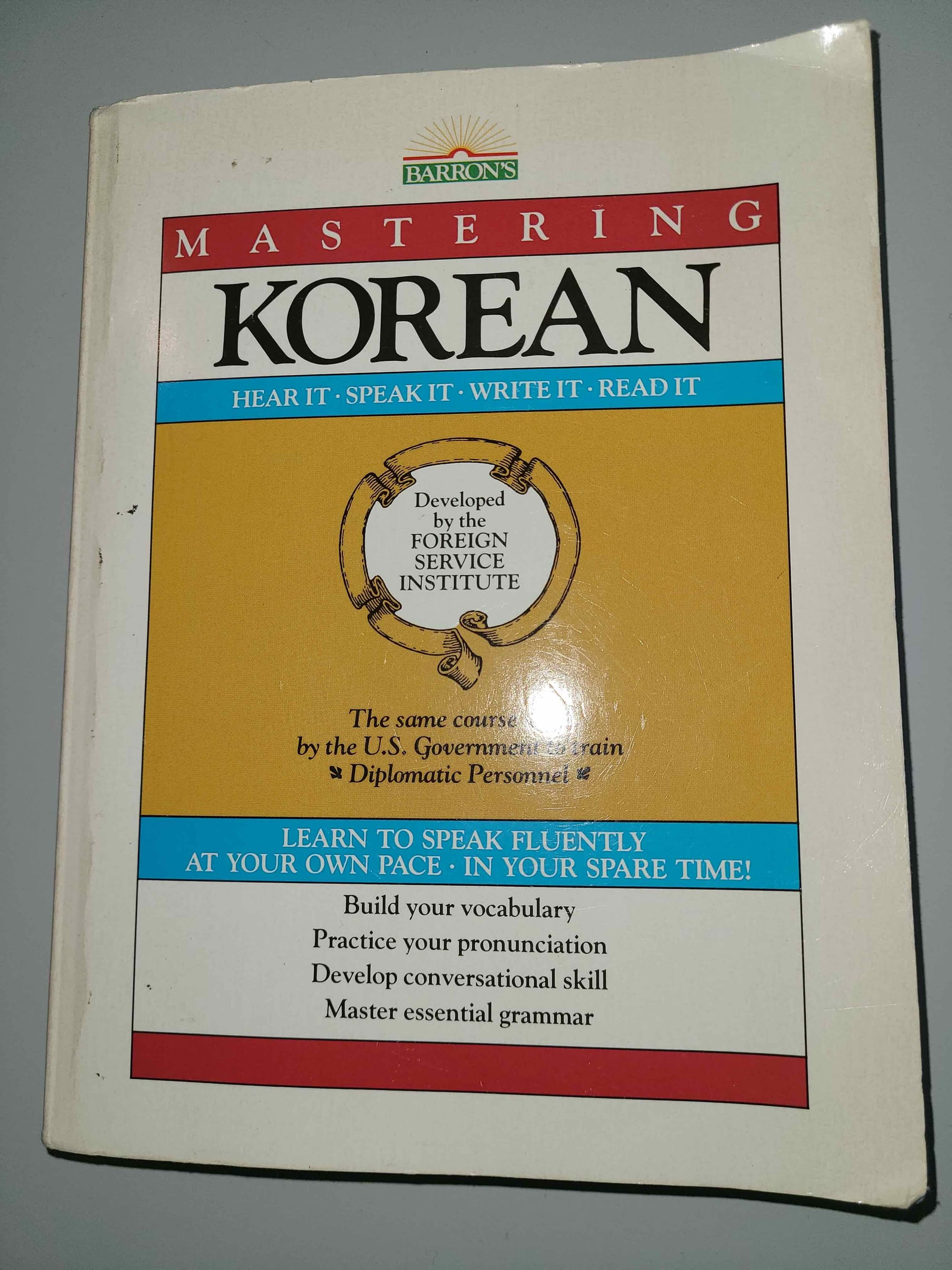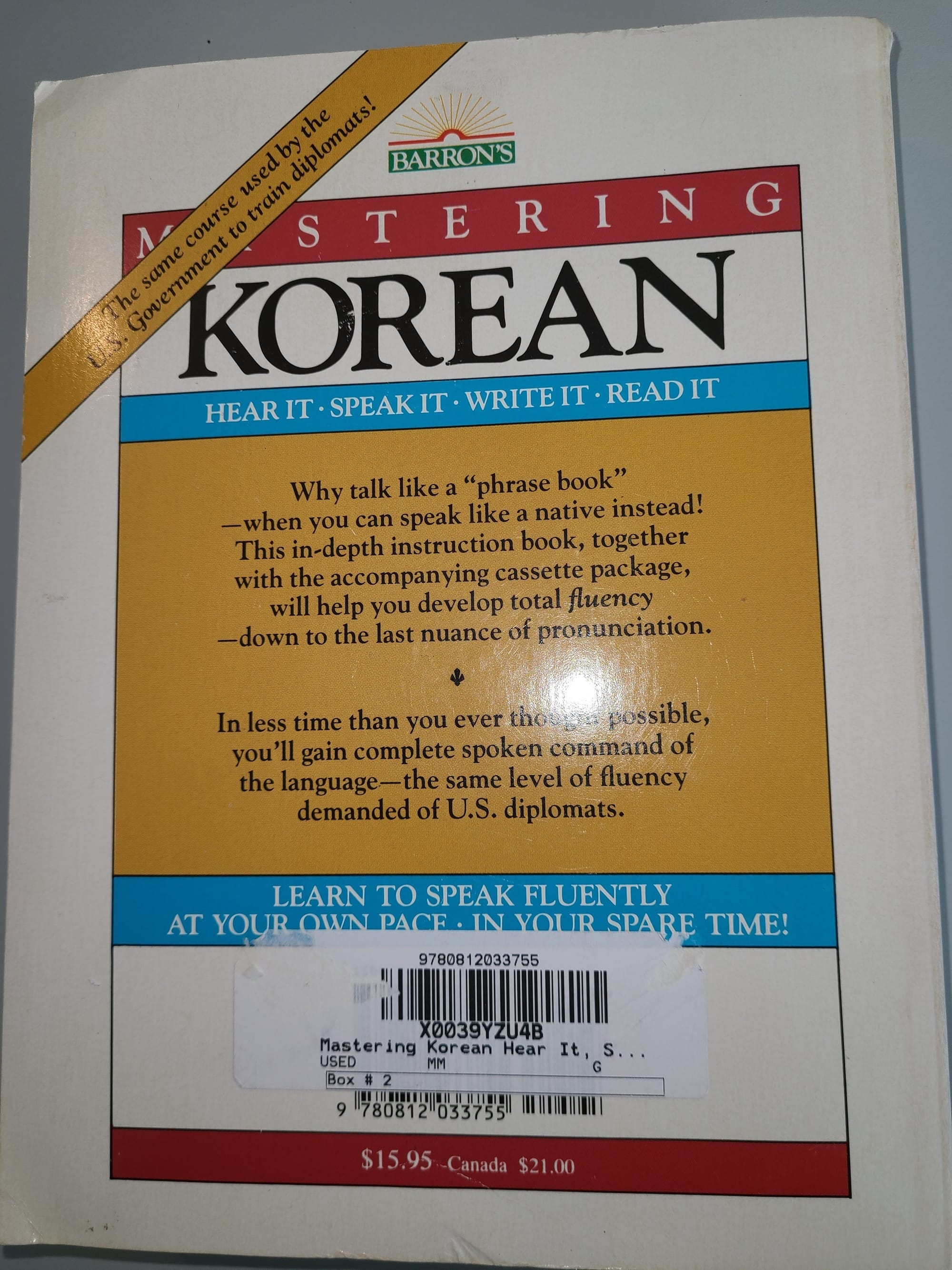Voices from Basic Korean Course

4.3.24 Writing for the trash.
So, the paperback of The All-American is out, and I'm thinking about some of the things that never made it into the book or the audiobook. The first of them is the original recordings of the Foreign Service Institute's Korean Basic Course.
Sometime in the 90s, back when I would haunt the Barnes and Noble in Silverdale, Washington. – the only place open late, with a coffee shop – I'd wander the aisles and marvel at the spines of all those books. I'd imagine what it would be like to have already finished reading it. At that moment in time, I was fixated on the idea that I wasn't all that smart – tests, grades, and other banal indicators of teenage insecurities supported this idea), and I could turn my nascent life around by learning to read hard things, all sorts of things, to become what I learned was a 'renaissance man.' One of the things I found was a big packaged $100.00 set of tapes that came along with a book called The Foreign Service Institute's Korean Basic Course. It was part of the materials the State Department created to help diplomats and their staff learn Korean as quickly as possible. It said so on the back of the big box hat Barron's used to advertise the course.


Being Korean American and having a mother who was always a bit ashamed that I didn't learn to speak Korean (a story for another day), I managed to cajole her into buying it for me for some holiday or birthday. When I got home, the enormity of my mistake was made clear when the voices of B. Nam Park and Chunghwa T. Kay came through. These were stern, no-bullshit teacher voices. I opened the text and saw that it was typed in that old government "courier" clearly, austere, and clearly a product of determined hard work on both the people creating this course and the people who were its intended students: those people who were destined to fight communists and sneered at hippies.
So, after a couple of trial runs, my Nintendo won out. The tapes and the text went back into the black plastic box, and all hundred dollars of it stayed on a shelf for the dust to cling to it.
Years later, as an adult learning Korean, I revisited the FSI course and discovered that it was :
1.) public domain since it was developed for the government years ago, and
2.) it was all online. (The texts from the government here, and the audio from multiple places here.
Something I'd like to do in the future is explore the history of the FSI and people who have used the course to learn the languages, particularly the Korean one, but something I've learned long ago is that ideas are cheap and many, and what really matters is really hammering at the few that really sing to you.
However, I suspect that the State Department and probably the military both use these courses to teach its people effectively. Which, if you're interested in the pedagogy, is all about rote repetition. It's not an elegant way to learn a language but it goes to show you that sometimes it's more about doing the work rather than trying to figure out the best way to do that work.
Anyway, I imagined my narrator – Bucky as many know him – being forced to learn Korean with this tool. I asked the audiobook company to use the original recordings because the voices have an undeniable level of cold perfessionalism that would strike terror into any student who isn't intrinsically determined to learn Korean.
However, for reasons I'm not sure of (my guess is the quality of these recordings or mixing issues), they did it their own way. But here they are for you to listen to, for your enjoyment or terror.